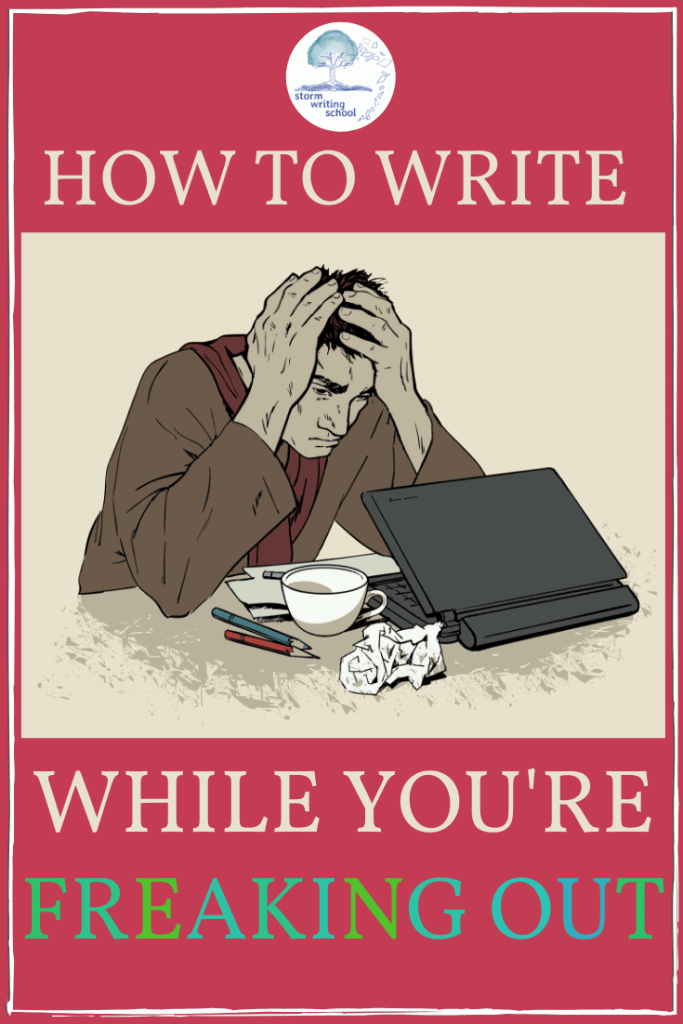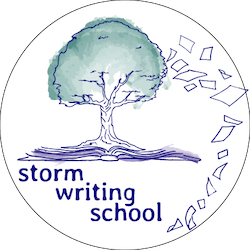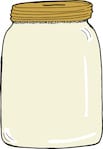First of all, this is not about guilting you into being more productive with your creative endeavors. Sometimes, life throws you curveballs, and you just can’t write. Every writer I know goes through those periods. You have a baby, a relative dies, you move, a hurricane hits, you start a new job, you get sick—these major transitions can take a lot of time and mental energy and it’s normal to feel anxiety.
Like the Paul Simon lyric says, “Sometimes even music/Cannot substitute for tears.” Sometimes you just have to live life rather than make art about it.
It’s okay.
Secondly, I’m not addressing clinical anxiety. I’m discussing the low-level anxiety and spiral of worry that you might be feeling right now as the most significant pandemic of our lives spreads across the world and causes major disruptions.
How can you write when the world seems to be falling apart?
A Sense of Purpose
If you want to write but you’re struggling with being distracted by your worries, begin by remembering the value you place on your art. Why do you do it?
If it’s important to you, if you think storytelling is necessary even amidst tragedies and times of high stress, if you feel that writing is essential to your well-being, and if you believe as James Baldwin does, that “It was books that taught me that the things that tormented me most were the very things that connected me with all the people who were alive,” then it may be worth pursuing your book or story even if you’re feeling a little tormented.
The Steps to Regaining Control of Your Writing
If the desire is there, try this:
Step 1: Quarantine the Distractions
I’m taking this idea from David Allen’s Getting Things Done concept (often called GTD). Allen explains that in order to be productive, you need to free up mental energy and achieve what he calls “Mind like water,” which is “a mental and emotional state in which your head is clear, able to create and respond freely, unencumbered with distractions and split focus.”
The first step in Allen’s system is to put your ideas, to-dos, and anxiety into a “bucket” or “inbox.” That is, write them down. When you write them down, you can forget about them—at least temporarily.
Step 2: Stimulus Control
The human brain tends to be more drawn to bad news than good news. Our brains, in fact, evolved to pay attention to stimuli that might harm us so that we could survive.
But when you get into a pattern of reading bad or alarming news, you can easily get addicted to it and end up reading far more information than you need to read.
So you may want to employ what Cognitive Behavior Therapists call “stimulus control.” The idea here is that you want to interrupt the link that occurs between the stimulus (reading news about the pandemic) and the response (increased electrical activity in the brain).

How?
Put aside the anxiety-producing stimuli. Notifications, emailed articles, social media, TV news, radio news, texts from friends, etc. It’s probably best to just turn off your wifi, put your phone in airplane mode (and maybe put it in a different room), turn off the TV and radio.
Step 3: Clear the Mind
Meditate.
Hum.
Breathe.
Try to think about nothing.
You’re transitioning from distraction and stimulus overload to creative mode. I’m not asking you to be a pro with meditation. Just try box breathing: breathe in for a count of four, hold it for a count of four, breathe out for a count of four, hold it for a count of four. Repeat five times.
Step 4: Show Up
Now, we’re going to write. But you don’t even need to tell yourself that. The important thing is to just show up to your writing (be it at a computer—again, with the wifi off—or with a pen and paper).
Keep low expectations. Shoot for just ten minutes. Go longer if you can, but don’t sweat any kind of quota right now.
Writer’s block and writer’s anxiety and writer’s panic often stem from a fear that you’re not hitting a bar you’ve set for yourself. That is, they’re often rooted in feeling inadequate.
So think about this as just showing up to keep your writing company for a little while. Tap out a few sentences. Allow your mental energy to be totally consumed by your story and nothing else.
Will you get some writing done? Probably. It’s likely to be less than normal. But even if you get very little done, you’ve succeeded in giving yourself a much-needed break from the unhealthy cycle you’ve been in recently.
Some other tips to help manage things
Social distance doesn’t mean anti-social
Set up a call with a writing friend and talk about your story. Credit to Matt Bell for this one (he’s one of my favorite writers to follow on Twitter). Social distancing is just physical; it shouldn’t mean losing all other kinds of contact with people—especially those who can relate to your struggles. So make an appointment with a writer and call them up.
Schedule your day
For most of us, home is about unstructured, unscheduled time. It might seem counterintuitive, but creativity can actually benefit from structure. Sure, there are the famous eureka moments in the shower and whatnot, but those only happen to people who have primed their subconscious to be constantly problem-solving.
In chaotic times like these, creativity is more likely to arise from your making time for it.
Physical activity
You may have heard that exercise is good for you. It’s true. 🙂 Get some physical activity, even if it’s just one of those seven-minute circuits.
News diet
I know the feeling: it can seem irresponsible to ignore what’s happening. But that’s not what I’m calling for. I’m just saying that it may be best for you to set aside times to get updated and then otherwise ignore the hysteria.
Information is important. Go ahead and dig into things. But most of us don’t need more than 30-60 minutes of taking in such information. So limit your time.

Some further reading
- How Do We Write in Times of Strife?
- Why We Love Bad News
- Dopamine Fasting
- Dopamine Fasting from a skeptic
- How Fitness Will Make You a Better Writer
- How to Beat Writer’s Block
- Science Can Help You Beat Writer’s Block
- How Your Attitude and Approach toward Habits Can Revitalize Your Writing Practice
This article is part of the Author Toolbox Blog Hop. To continue hopping through other great blogs in the monthly hop or to join, click here and/or search #AuthorToolboxBlogHop on Twitter and Pinterest (here’s the group board).






14 Responses
I’ve thought about it, and I like thinking about my mind as water. I feel more relaxed since you intro’ed me to the concept. And that’s def one of the ways I become more productive. My mind wanders a few times a day or an hour to that item I need to make sure I pick up, but the moment I write it on a list, paper or in my phone, my mind stops wandering there. Re point 2 and the news diet, I agree. But for those who don’t know they need to hear this, yes, turn off the negative stimuli/news if you’re acting like a responsible human and social distancing, etc, but if you’re going to a St. Patrick’s Day party at a bar tonight, then you haven’t read enough of the news yet, so keep that negative stimuli active. Okay, now I’m box breathing and relaxed again. I’ve got 3 skype dates with friends coming up, thank goodness. Great post, Tim. Needed.
Oh, yeah, that’s true. There are definitely some people who are not freaking out enough. They’re also definitely not reading this article. 🙂
I have nights when I lie in bed and twitch and toss and turn. I can fume about it, angry at the universe, or myself, which only makes it worse, or I can get out of bed and write. I know that screen time IS BAD if you’re trying to fall asleep, but if I can’t sleep anyway, I might as well, and if I write long enough, I’ll eventually become so tired and sleepy I can’t help but fall asleep. (I’m lucky in that I don’t have small children and I work at a job where I can come in a bit late and makeup my hours – a luxury.) Sometimes the most sublime, loose, ridiculous words spill out onto the page at 2 or 3 in the morning because I do not care at that hour what my brain is thinking. I just write. Sometimes I can’t sleep because a line pops into my head, or an idea for a story and I can’t sleep until I’ve written it down. It’s like being thirsty. I have to write, to slake that thirst, even, or sometimes, most especially, when I’m anxious.
Well put, Polly. I like that concept of writing slaking the thirst. I definitely feel that way.
It is really hard to devote time to something you consider a hobby–like writing–when the sky is falling. Great advice.
Amen. I think people need to see their writing not as a hobby but as something essential to their wellbeing, like exercise or good food. Certainly, there are some times when you can take a break even from those things, but you’ll feel better if you can figure out how to reincorporate those sources of wellness into your life.
Great tips, and perfect for this time of uncertainty. I’ve limited myself to checking the news once a day, otherwise it is too easy to get totally freaked out. Thanks for sharing.
I’m finding that limit especially important right now.
So it’s taken me two weeks to get to this – but well worth it. For me, writing is an escape. I’ve spent time just quietly re-reading my favorite bits … and my series is set in the real world – and I will have to project it to start after this whole mess since it’s not yet published, so I am just kind of playing with ideas of how my character is handling this whole mess and that’s helping me process it as well. Good article – will share with friends.
Thanks, Carol! I’m so glad to hear that your project is helping you process what’s happening and also allowing some escape!
Tim,
Thanks for the post. I wish I’d gone ahead and read it a month ago. The sense of purpose I think is really essential. In real ways, our writing is an antidote to the chaos that’s been going on, for us and others. That’s all the more reason to find ways to keep going with it.
Jimmy
I like what you say about writing being the antidote, Jimmy!
I needed to read this again.
Thanks.